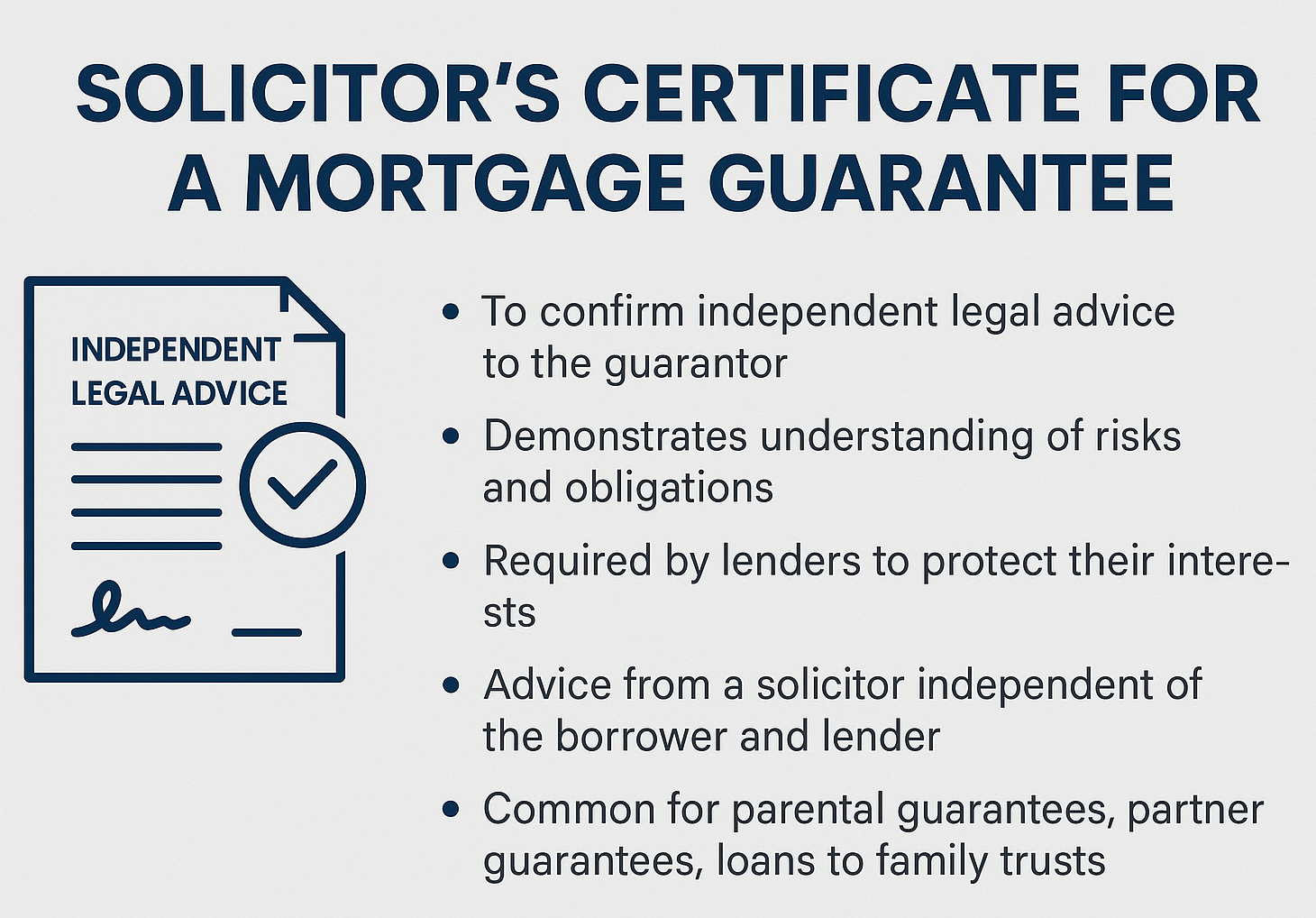It is not surprising given the hilly nature of Brisbane and surrounds that there are a number of retaining walls and issues arise between neighbours concerning them. This article addresses the quite common issue of a retaining wall on the boundary of two properties...
News
Other News
Mortgage Guarantee Advice: Do You Need A Solicitor’s Certificate?

Being asked to be a guarantor for someone else’s mortgage, be it your child, partner or trust, involves very serious financial and legal commitments. Lenders will generally require you to obtain a Solicitor’s Certificate as confirmation that you’ve had independent legal advice before going ahead.
RMO Law’s Peter Kronberg – Special Counsel, offers clear, pragmatic advice to clients who need legal advice in relation to mortgage guarantees.
What is a Solicitor’s Certificate?
A Solicitor’s Certificate is a formal document that verifiers:
- You’ve received independent legal advice about becoming a guarantor
- You understand the nature and risks of the guarantee
- You are entering the agreement willingly and without undue pressure
Why it’s Important
As a guarantor, you could be left to pay the whole mortgage debt if the borrower is in default. Banks require legal advice, hence, to inform you about the consequences and reduce the likelihood of future disputes. The certificate is also evidence that you entered into the agreement voluntarily.
When You May Need One
Solicitor’s Certificates are frequently needed in the following scenarios:
- Parents to secure a child’s home loan
- Borrowing from family trusts
- A partner to guarantee the other’s debt
- Home loans with minimal deposits (typically below 20%)
Our Role
Peter Kronberg will walk you through your obligations and make certain you know everything prior to signing. His advice is practical, straightforward, and aimed at protecting your legal entitlements.
To organise your independent legal advice, call us today on 1800 957 936 or submit an enquiry on our website.
This article is for your information and interest only. It is not intended to be comprehensive, and it does not constitute and must not be relied on as legal advice. You must seek specific advice tailored to your circumstances.
Written by Peter Kronberg / Authorised by Roly O’Regan
Get in Touch

